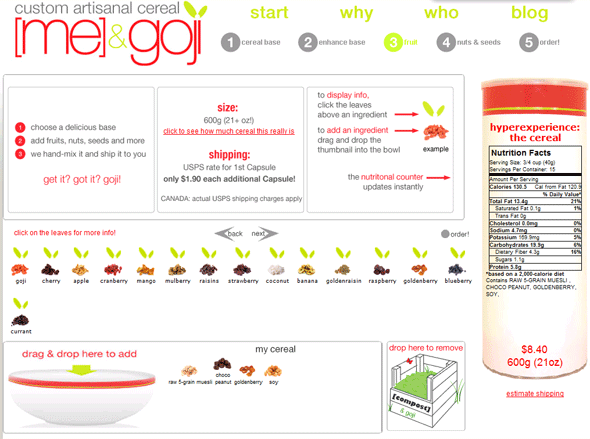Mass Customization is generally thought of as a technological triumph combining the quality of the made-to-order with the efficiency of the mass-produced. Recently, it has been proposed that mass customization could also be desirable in terms of sustainability. Custom goods are always made on-demand, reducing inventory and waste. They may also warrant higher prices and be treated with more respect; and they are rarely disposable. Of course, food has always been customized: everyone recognizes the value of a freshly cooked meal at neighborhood restaurant sourced from local produce. But it has been impossible to mass-customize food, until now: me&goji provide a software tool to design and brand your own cereal on-line (above). They will then pack and ship it to you from New Hampshire (carbon-free for an extra dollar). Is this a better solution that mixing bulk ingredients at your local market? Probably not. But it points the way toward a new value proposition, where consumers are involved in tracing (and designing) products, based on an informative web-based interface.
cereal craft
This entry was posted in customization, energy, environment, fabrication, food. Bookmark the permalink. Both comments and trackbacks are currently closed.

One Trackback
[…] Mass Customization is generally thought of as a technological triumph combining the quality of the made-to-order with the efficiency of the mass-produced. Recently, it has been proposed that mass customization could also be desirable in terms of sustainability. More > […]